As loving pet parents, we often want to share our delicious meals with our canine companions. However, some common human foods can pose serious health risks, even being toxic, to dogs. Understanding what foods dogs can’t eat is crucial for their safety and well-being. This comprehensive guide will walk you through the most dangerous foods for your furry friend, helping you differentiate between safe treats and potential poisons.
Understanding Why Certain Foods Are Toxic to Dogs
The fundamental reason why some human foods are harmful to dogs lies in their vastly different digestive systems and metabolic processes compared to ours. What our bodies can process safely, a dog’s system might struggle with, leading to adverse reactions or toxicity. For instance, the compounds theobromine and caffeine, found in chocolate, are metabolized much slower by dogs. This slow processing allows these substances to build up in their systems, potentially reaching toxic levels and causing severe health issues.
Similarly, while cherries are a sweet treat for us, their pits, stems, and leaves contain cyanide. Although a single cherry pit might not cause immediate harm, consuming them in larger quantities or if a dog ingests the entire pit can lead to serious problems. The hard pits also present a choking hazard and can cause digestive upset.
The impact of toxic foods can also be influenced by a dog’s size, breed, age, and any pre-existing health conditions. Therefore, consulting with your veterinarian is always the best course of action if you have any doubts about a particular food item.
The Definitive List of Common Foods Dogs Cannot Eat
Many everyday foods found in our kitchens are, in fact, dangerous and often toxic to dogs. It’s vital to be aware of these to prevent accidental ingestion. This list covers some of the most common culprits, but it’s important to remember that this is not exhaustive. Always err on the side of caution.
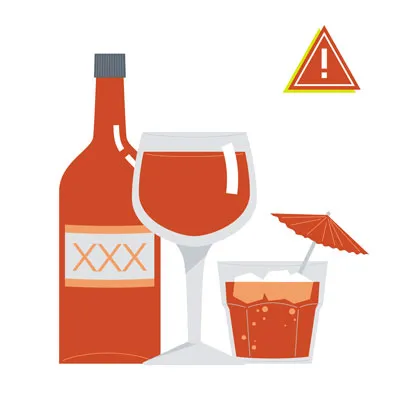 Alcohol
Alcohol
1. Alcohol
Alcoholic beverages, including fermented foods and even uncooked dough that produces alcohol, are highly toxic to dogs. Their smaller body size makes them much more susceptible to the harmful effects of alcohol. Even a small amount can lead to severe poisoning, characterized by symptoms like vomiting, breathing difficulties, disorientation, coma, and potentially death.
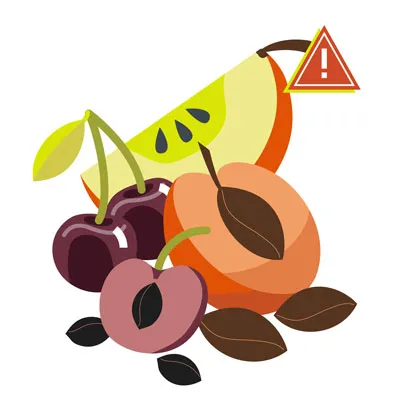 Apple, Apricot, Cherry, & Plum Seeds/Pits
Apple, Apricot, Cherry, & Plum Seeds/Pits
2. Apple, Apricot, Cherry, and Plum Seeds/Pits
While the flesh of apples is safe and healthy for dogs, their seeds and core contain cyanide. Although small amounts might not cause immediate harm, it’s best to remove and discard them to avoid any risk. The pits of apricots, cherries, peaches, and plums are also dangerous as they contain cyanide. Ingesting these pits can lead to serious health complications, including respiratory distress and cardiovascular issues, due to the disruption of oxygen transport to the cells. Furthermore, these pits can cause gastrointestinal blockages.
 Avocado
Avocado
3. Avocado
Avocado is another food that should be kept away from dogs. While the fleshy part is not inherently toxic, the avocado pit is a significant choking hazard and can cause intestinal obstructions. Additionally, avocados contain a substance called persin, which can cause vomiting and diarrhea in dogs, though the level of toxicity is generally considered low.
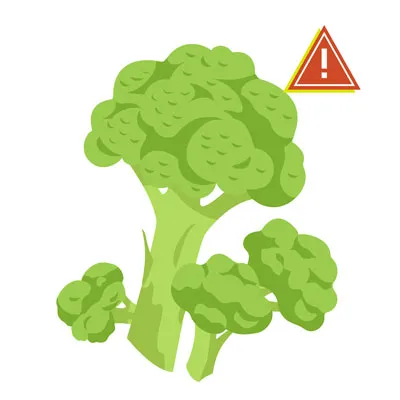 Broccoli
Broccoli
4. Broccoli
Broccoli can be problematic for dogs in large quantities. It contains a compound called isothiocyanate, which can cause gastric irritation and potentially vomiting in sensitive dogs. While small amounts might be tolerated, it’s generally safer to avoid offering broccoli regularly. The stalks can also pose a choking risk.
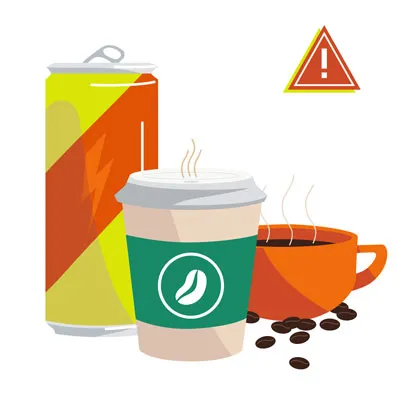 Caffeine & Coffee Grounds
Caffeine & Coffee Grounds
5. Caffeine and Coffee Grounds
Caffeine is a stimulant that can be dangerous for dogs, affecting their nervous system and heart. Coffee grounds, tea leaves, and caffeinated beverages should be strictly avoided. Even small amounts can lead to hyperactivity, rapid heartbeat, tremors, seizures, and in severe cases, death.
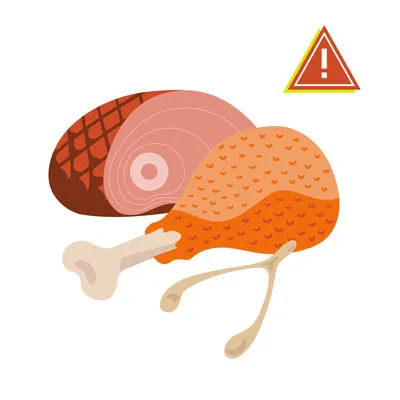 Chicken & Turkey Skin, Ham, & Other Fatty Cuts of Meat
Chicken & Turkey Skin, Ham, & Other Fatty Cuts of Meat
6. Fatty Meats and Bones
While dogs are often associated with meat, certain types and preparations can be harmful. Fatty cuts of meat like ham, bacon, and greasy trimmings from chicken or turkey can lead to pancreatitis, a painful and potentially life-threatening condition. Cooked bones, especially poultry bones, are extremely dangerous as they can splinter and cause choking, internal perforations, or blockages in the digestive tract. Always opt for lean, unseasoned cooked meats if you are feeding your dog a home-prepared meal. You can learn more about what can dogs eat human food for safer options.
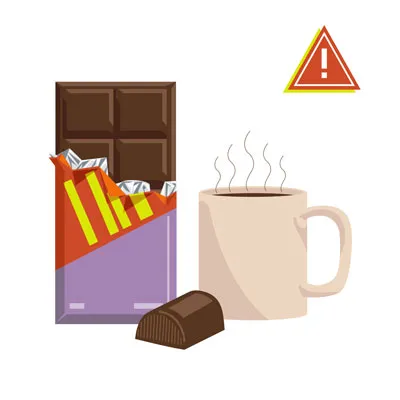 Chocolate
Chocolate
7. Chocolate
Chocolate is a well-known toxin for dogs. The darker and more bitter the chocolate, the higher the concentration of theobromine, the dangerous compound responsible for chocolate poisoning. Symptoms can range from vomiting and diarrhea to tremors, seizures, and cardiac arrest. Even small amounts can be problematic, so keep all chocolate products out of reach.
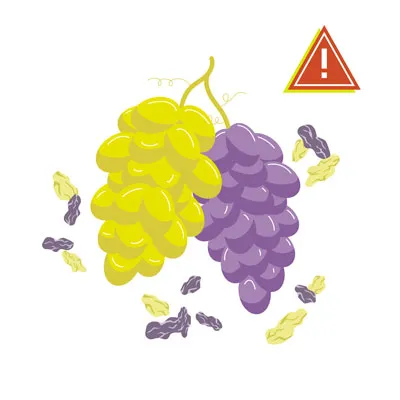 Grapes & Raisins
Grapes & Raisins
8. Grapes and Raisins
Grapes and raisins are extremely dangerous for dogs and can cause sudden kidney failure. The exact toxic agent is unknown, but even a small amount can have devastating effects. Symptoms include vomiting, lethargy, and a decrease in appetite and urine output. If your dog has ingested grapes or raisins, seek immediate veterinary attention. This is why understanding what food dogs can t have is so vital.
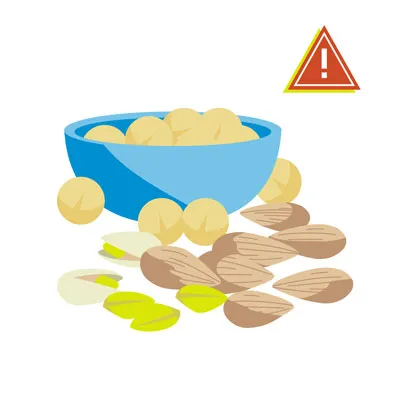 Macadamia Nuts, Almonds, & Pistachios
Macadamia Nuts, Almonds, & Pistachios
9. Macadamia Nuts, Almonds, and Other Nuts
Macadamia nuts are highly toxic to dogs, causing symptoms like weakness, vomiting, tremors, and elevated body temperature. While other nuts like almonds and pistachios might not be as acutely toxic, they pose significant choking hazards and can cause gastrointestinal upset due to their high fat content. Avoid all nuts unless specifically recommended by your veterinarian.
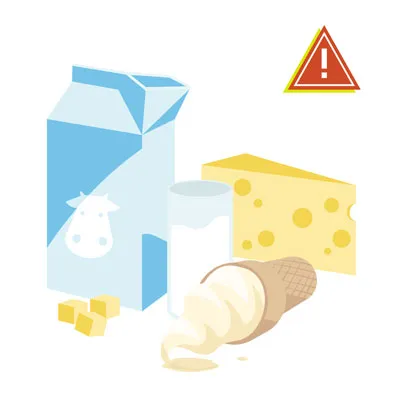 Milk & Dairy Products
Milk & Dairy Products
10. Milk and Dairy Products
Many dogs are lactose intolerant, meaning they lack the enzyme to properly digest lactose, the sugar in milk. This can lead to digestive issues like diarrhea and gas. While small amounts of certain cheeses might be tolerated by some dogs, it’s generally best to limit or avoid dairy products altogether. High-fat dairy products can also contribute to pancreatitis.
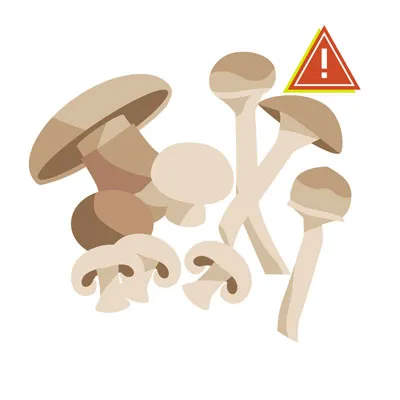 Mushrooms
Mushrooms
11. Mushrooms
Some wild mushrooms contain toxins that can cause severe gastrointestinal upset, liver damage, and even neurological issues in dogs. Unless you are an expert in identifying safe mushroom varieties, it is best to err on the side of caution and prevent your dog from consuming any mushrooms.
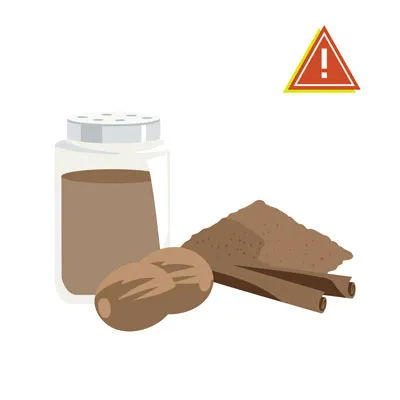 Nutmeg & Cinnamon
Nutmeg & Cinnamon
12. Nutmeg and Cinnamon
Nutmeg, especially in larger quantities, can be toxic to dogs and may cause hallucinations, vomiting, and tremors. Cinnamon, while not as acutely toxic, can cause irritation to your dog’s mouth, stomach, and respiratory tract, and may lead to low blood sugar.
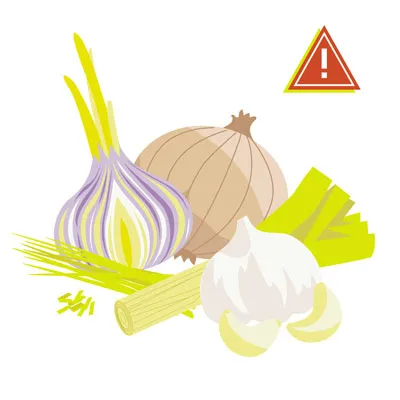 Onions, Garlic, Chives, & Leeks
Onions, Garlic, Chives, & Leeks
13. Onions, Garlic, Chives, and Leeks
All members of the Allium family—including onions, garlic, chives, and leeks—are toxic to dogs. They contain compounds that can damage red blood cells, leading to anemia. Even in their powdered form, often found in processed foods, they can be dangerous. Some dog breeds, like Akitas and Shiba Inus, are particularly sensitive.
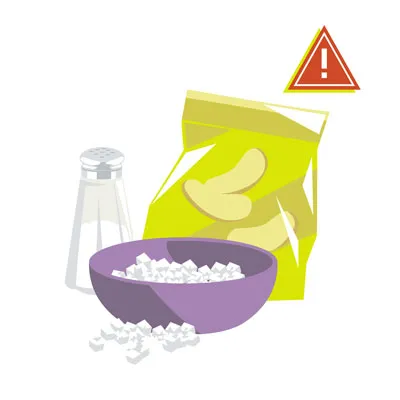 Salt
Salt
14. Salt and Salty Foods
Excessive salt intake can lead to sodium ion poisoning in dogs. This can cause symptoms like excessive thirst and urination, vomiting, diarrhea, tremors, seizures, and even coma. It’s important to avoid giving your dog salty snacks like chips, pretzels, or even processed meats.
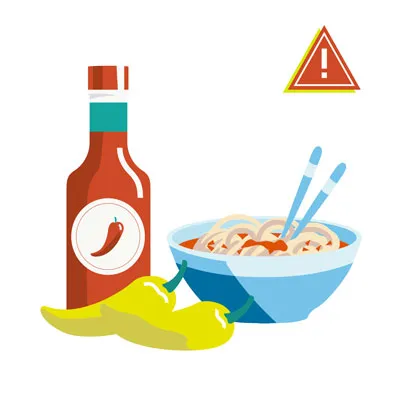 Spicy Food
Spicy Food
15. Spicy Foods
Spicy foods can cause significant digestive upset in dogs, leading to vomiting, diarrhea, and stomach pain. Their digestive systems are not equipped to handle the capsaicin found in peppers and other spicy ingredients.
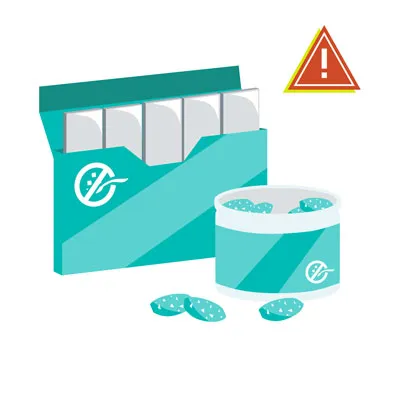 Sugar-Free Gum & Candy (Xylitol)
Sugar-Free Gum & Candy (Xylitol)
16. Xylitol (Artificial Sweetener)
Xylitol is a common artificial sweetener found in sugar-free gums, candies, baked goods, and some peanut butters. It is extremely toxic to dogs, even in small amounts. Xylitol causes a rapid release of insulin, leading to a dangerous drop in blood sugar (hypoglycemia) and can result in liver failure. Always check ingredient labels for xylitol.
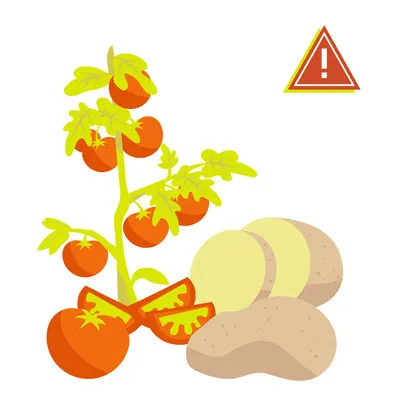 Tomatoes & Raw Potatoes
Tomatoes & Raw Potatoes
17. Tomatoes and Raw Potatoes
The green parts of the tomato plant, including unripe tomatoes, contain solanine, which is toxic to dogs. Ripe tomatoes are generally considered safe in moderation, but it’s best to remove any green parts. Similarly, raw potatoes contain solanine and can be difficult to digest. Cooked potatoes without any additives are usually safe in small amounts.
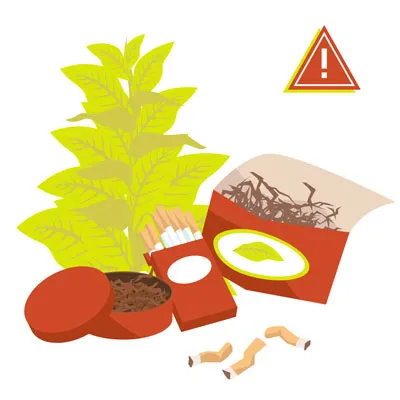 Tobacco
Tobacco
18. Tobacco
Nicotine in tobacco products is highly toxic to dogs. Ingesting tobacco, whether from cigarettes, cigars, or chewing tobacco, can cause serious symptoms including vomiting, diarrhea, rapid heart rate, tremors, seizures, and even death. If your dog ingests tobacco, seek immediate veterinary care.
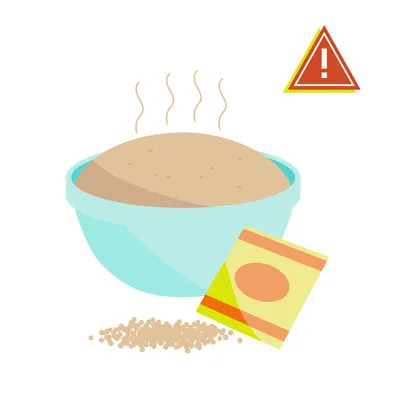 Yeast & Raw Dough
Yeast & Raw Dough
19. Yeast and Raw Dough
Consuming raw dough containing yeast is dangerous for dogs. The yeast can ferment in the warm, moist environment of the dog’s stomach, producing alcohol and causing bloating and potentially life-threatening gastric dilation-volvulus (GDV), also known as bloat. The expanding dough itself can cause significant discomfort and internal damage.
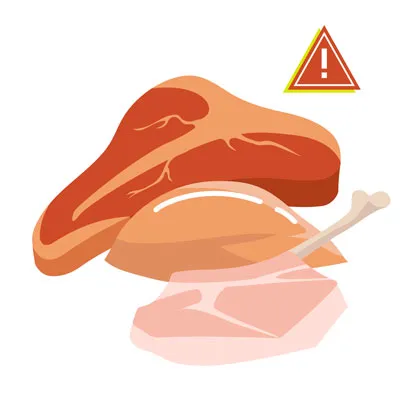 Raw Meat
Raw Meat
20. Raw Meat and Eggs
While some advocate for raw feeding diets, raw meat and eggs can harbor harmful bacteria like Salmonella and E. coli, posing a risk of foodborne illness to both dogs and humans. Raw eggs also contain avidin, which can interfere with biotin absorption. It’s always safer to cook meat and eggs thoroughly.
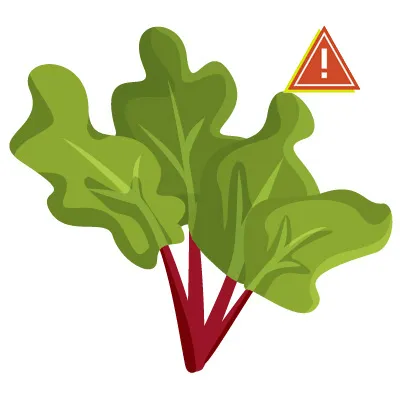 rhubarb
rhubarb
21. Rhubarb
Rhubarb leaves and stems contain high levels of oxalic acid, which can interfere with calcium absorption and potentially lead to kidney damage and renal failure. Symptoms of rhubarb poisoning include tremors, vomiting, and bloody urine.
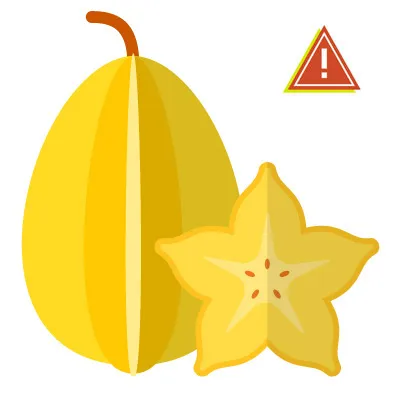 star fruit
star fruit
22. Star Fruit
Similar to rhubarb, star fruit contains soluble calcium oxalates, which can be harmful to dogs. Ingesting star fruit can lead to a dangerous drop in blood calcium levels and potentially kidney problems.
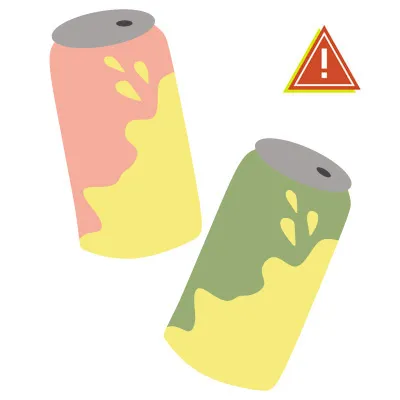 seltzer water
seltzer water
23. Flavored and Carbonated Waters
While plain water is essential for hydration, flavored or carbonated beverages are not recommended for dogs. They often contain artificial sweeteners, sugar, or other additives that can be harmful. Carbonation can also lead to gas and bloating.
What Dogs Are Most at Risk if They Consume Toxic Foods?
While any dog can be negatively affected by toxic foods, certain groups are at a higher risk:
- Small Breeds: Due to their lower body weight, even small amounts of toxic substances can have a more profound and dangerous effect.
- Puppies: Their developing digestive and immune systems are more vulnerable to toxins.
- Elderly Dogs: Older dogs may have underlying health conditions that make them more susceptible to the adverse effects of toxins.
- Dogs with Pre-existing Health Conditions: Dogs suffering from chronic illnesses like diabetes, kidney disease, or heart conditions are at an increased risk when exposed to toxins.
How To Prevent Dogs from Eating Toxic Foods
Preventing your dog from accessing harmful human foods is a crucial aspect of responsible pet ownership. Here are some effective strategies:
- Secure Storage: Keep all potentially toxic foods stored securely out of your dog’s reach. Use high shelves, closed cabinets, or pet-proof containers.
- No Table Scraps: Avoid feeding your dog directly from your plate or during meal preparation. This reinforces begging behavior and makes it harder to control what they consume. Stick to appropriate dog food and treats. Understanding what is okay to feed dogs can guide you in providing safe treats.
- Educate Everyone: Ensure all family members, including children, and any guests are aware of the dangers and refrain from giving your dog human food.
- Holiday Vigilance: During holidays, when food is often more abundant and celebrations are frequent, be extra vigilant. Keep food items secured and supervised.
What To Do if Your Dog Eats Something Toxic
Accidents can happen, and if your dog ingests something toxic, prompt action is crucial.
- Contact Your Veterinarian Immediately: Time is of the essence. The sooner your dog receives professional veterinary care, the better the prognosis. Have the following information ready: the type of food ingested, the approximate amount, and the time of ingestion.
- Recognize Symptoms: Familiarize yourself with the signs of food poisoning, which can include vomiting, diarrhea, lethargy, abdominal pain, tremors, seizures, and difficulty breathing.
- Follow Veterinary Advice: Do not attempt to induce vomiting or administer home remedies unless specifically instructed by your veterinarian. Certain toxins require specific treatments, and incorrect interventions can be harmful.
Keeping your dog safe from dangerous human foods is an ongoing responsibility. By staying informed and vigilant, you can help ensure your beloved canine companion lives a long, healthy, and happy life. For further information on what to do if your dog exhibits concerning behaviors like eating grass, you can refer to what should i do if my dog keeps eating grass. Also, for specific age-related dietary needs, consider looking into what can a 3 month old puppy eat.
